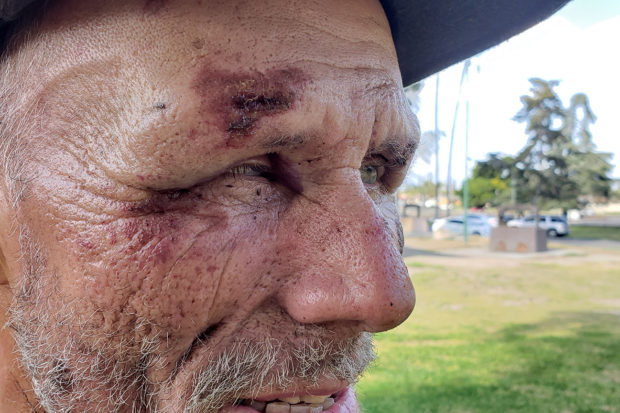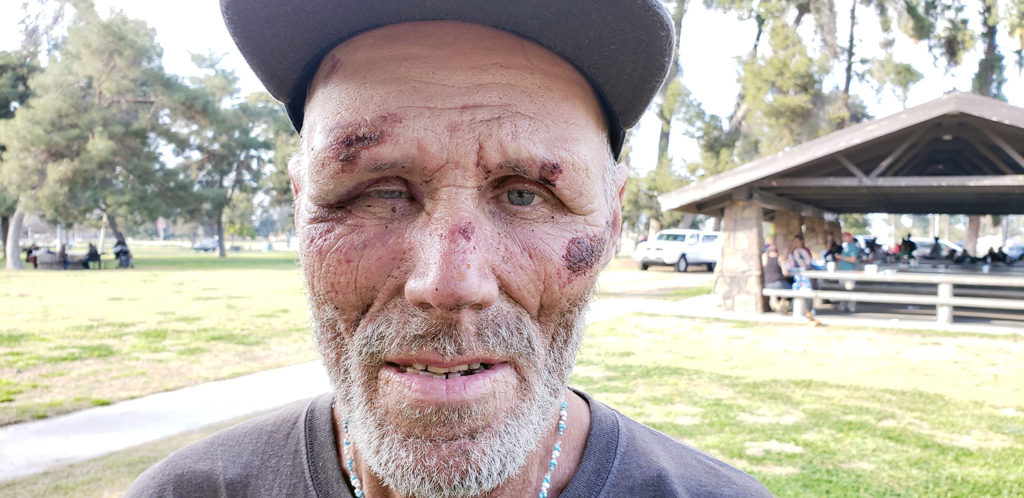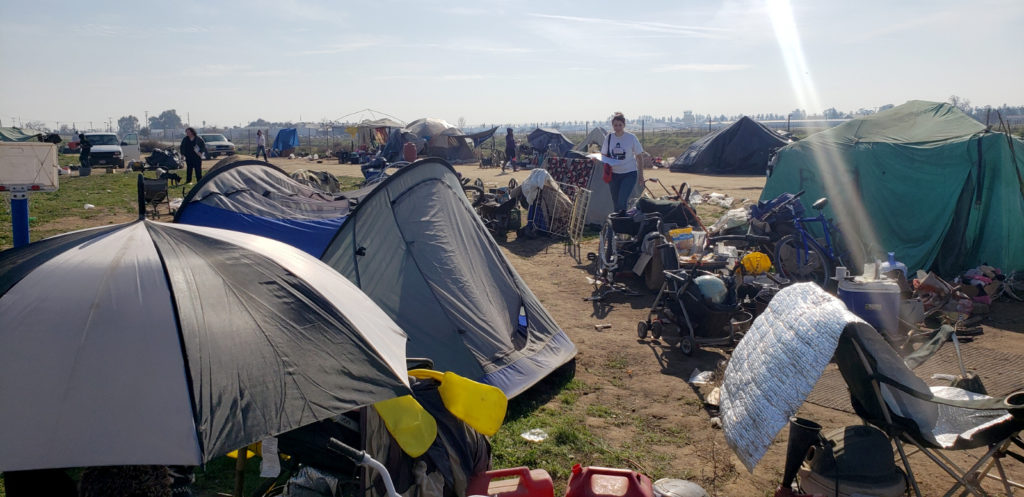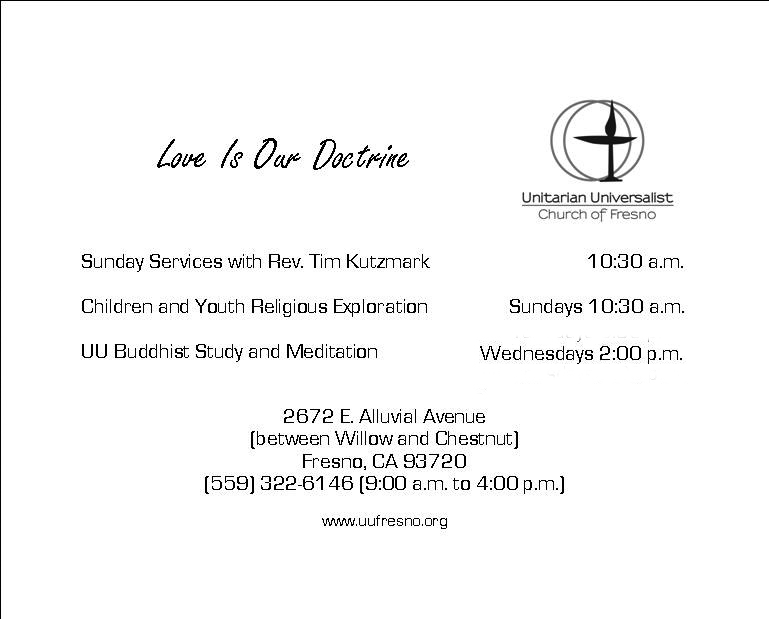
By Mike Rhodes
Recently, Dez Martinez, with the advocacy group Homeless in Fresno, contacted the Community Alliance and said the Fresno Police Department (FPD) Homeless Task Force (HTF) and other city workers were preparing to destroy a homeless encampment near West Avenue and Highway 180.

When Martinez arrived on the scene, an ambulance was heading out taking a badly beaten homeless man to the hospital. Here is how she described the scene. “As soon as I pulled up to the cul de sac, I saw an ambulance onsite and turned my on camera immediately.
“Nervous and scared of what just happened, I remained calm and began to approach the camp. As soon as I reached the camp, several street family members came up to me in a panic and outrage about what just happened.”
Martinez, who has been homeless herself, says one of the camp residents told her that the police “beat up Dreamer; they took him down and just kept beating him. They kicked his legs out, they kicked him in the face, they all were punching him.”
This was done after the homeless man complained to the police about the camp’s demolition and suggested that homeless people should not be treated that way.
The man, whose name is Lewis Brown (known on the streets as Dreamer), was taken to Community Hospital where he was treated, turned over to police custody, booked at the County Jail and released. The nurse who was cleaning his wounds said, “I’m tired of seeing the police do this.”

Dreamer had to walk several miles back to the encampment and found that about 90% of his property was missing. All that remained were some clothing and a couple pots and pans.
Local attorney Kevin Little said that “what happened to Lewis Brown should outrage anyone who is concerned about justice in our city. As numerous witnesses can confirm, Mr. Brown was attacked by law enforcement only because he objected to their unreasonable orders.
“Because he objected, Lewis, a 60-year-old, frail homeless man, was brutalized by multiple officers and falsely charged with ‘obstructing justice.’ Justice, indeed.”
Brown was charged with resisting arrest, obstructing an officer and trespassing. He was also informed that he could get a charge for inciting a riot because he had someone call Martinez to come to the camp.
Little says that “it is currently unknown if the charges against Mr. Brown will result in a case against him; no date is yet set. We are hopeful that the District Attorney will reconsider and decline to pursue these charges, but if it does, I stand ready to fight to vindicate Mr. Brown, not only for his benefit but for all of his street family who experience harassment from law enforcement every day in our community.”
Asked if anything like this had happened before, Martinez said that “it’s not unusual for the Fresno Police Department Homeless Task Force, which consists of five officers, to break up encampments. They do this daily.
“It’s not unusual to see or hear about this type of abuse on the homeless. It’s normal to hear now, and that should not be normal.”
Martinez continues, “Back when I started five years ago, I would go to encampments and see someone hurt or bruised and ask what happened and they would tell me ‘the police.’
“At first, I was like, ‘Naw, it can’t be like that because there would be an uproar in Fresno, for the FPD to abuse in public and witnesses around, something would have been done,’ but when you witness it in person or via recording, you are in disbelief, you feel like you’re in another country but you’re not; it’s here in your own backyard, what you call your community.”
Martinez and her friend Brandi Nuse-Villegas have been filming incidents like this for several years. They have started live streaming some of these incidents on the Community Alliance Facebook page. Martinez and Little are both interested to see what the bodycam footage of the attack on Brown will show.
Relying on her experience and instincts to document these violations of homeless people’s rights, Martinez says that she can “post on social media hoping they will stop or maybe someone higher up will put a stop to it, but they see it and it doesn’t stop, even with video; it’s like you’re ‘just invisible, you should get used to it.’”
“Now when I am at camps and the street families tell me about what happened yesterday when HTF was there, the only response I have anymore is ‘damn, again? What hospital?’ so I can go visit or find out when he/she is getting out.”
*****
Mike Rhodes is a member of the Community Alliance newspaper’s Editorial Board and the author of a book about Fresno’s homeless, Dispatches from the War Zone. Contact him at mikerhodes@comcast.net.
Advertising

